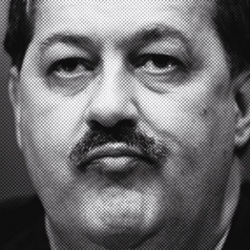
I picked up the Post-Gazette and noticed two front page articles - front and center - and began reading.... and lost my appetite. I felt tears coming to my eyes, and an ache in my heart, and, yes, I admit it, anger and fury - all over my body where those feelings reside, I felt their heat and intensity.
The articles that fired me up? (1) A story about the newly published independent review of the Upper Big Branch coal mining explosion that took the lives of 29 coal miners on April 5, 2010. The finding - gross neglect - primarily on the part of Massey Energy's shoddy oversight of mine safety, and the federal and state regulatory officials who had counted and cited several hundreds of safety violations and yet never closed the mines. AND (2) the first person accounts of the men who survived the mining disaster.
As noted in the first story, the independent review does not read like a dry technical report written by sterile bureaucrats. It reads like a thriller - a record of a historical event that rivals stories of war, natural disasters, plagues. Its main characters are humans - archetypes that have existed for centuries. An extra-big villain - Don Blankenship, a West Virginia native with an uncanny facial resemblance, though with a little more flesh, to another despot with a tiny black mustache - Mr. B is known as the dark lord of West Virginia coal country.
Rolling Stone magazine published an expose of Mr. B's work and his response to the mining explosion. Shortly after the article appeared, he resigned as CEO of Massey Energy - with a mighty big golden parachute, I might add. His salary had spiked in the months before the disaster. And even though he saw a drop in salary of 48% by the end of 2010, he still walked off with millions and will sit pretty for the rest of his life. The people most directly affected by his actions and non-actions related both to the explosion and the mining-related environmental devastation could most certainly use some of that money - for health costs, for pain and suffering, for de-valued homes, for educational funds for spouses and children left without a husband and father. Yes, they sure could use - and most certainly deserve - such help.
Don Blankenship may be one of the big villains. There are lesser bad guys galore - many of whom look the other way in order to keep their jobs and salaries and, sometimes, their political seats - or maybe, because they are human, to avoid conflict and confrontation.
Those in the middle - the ones who know that the jobs they work both keep food on the table and poison the creek out back - these people often just feel stuck. These are the folks who don't see or understand alternatives, or fear change, or don't trust that things could be better, so they stick with the familiar.
The heroes and/or victims - they are the coal miners, and their families, and future families who will face the vast destruction associated with the mountain top removal typical of Massey Energy and similar companies, and with the dark underground mining in dank and dusty caves. Many of these heroes and victims come from a long line of miners and have deep roots in the mountains of Appalachia. The drivers of the plot - greed, neglect, inaction and passivity, ignorance, acts of God (according to Mr. B), bogged down bureaucracy, and many others.
Not so much talked about though? The chorus of this drama - the reporters and observers who do not necessarily act in big parts. You and me. Watching television reports about the explosion, reading newspapers, talking to friends, maybe signing petitions to voice our disgust with big coal operations, and.... flipping on light switches, recharging our multiple devices, typing away on our keyboards, TiVo-ing our favorite shows, and generally living our day to day lives without really seeing the men and the families of men whose labors feed the energy that travels the wires to our homes.
To really understand the fix we are in, we need to recognize that fossil fuels have supplied cheap, abundant and effective energy of all kinds for over a century - much cheaper than in most other parts of the world, much cheaper than the price of alternative energies that aren't yet built to scale, cheaper today than the long-term costs associated with the use of fossil-fuel driven energy. We review our electric bills, maybe shop around for a lower rate, turn off lights when not in use, perhaps even unplug the coffee-maker and other LED-lit appliances. We do that, most of us, without really understanding or even actually thinking about the fact that most electricity in our country is powered by coal burning plants... which are fueled by coal.... that is dug from deep underground by men in hazardous conditions (even in the 21st century) or sheared off the surface by giant machines doing mountain top removal that destroys the natural environment and the health of the people who live nearby.
Can those (we) in the chorus be villains or heroes, or are we limited to the passive roles of observer and reporter? When we see disaster coming, can we intervene and prevent chaos and destruction? Can we warn the heroes and victims-to-be? I think the authors of these dramas can have the chorus do whatever they want. I think we can even become authors of the dramas, or at least co-screen-writers.
We don't have to do it alone. We have options - one coming soon is the March on Blair Mountain in West Virginia - from the web-site:
We march to preserve Blair Mountain, abolish mountaintop removal, strengthen labor rights, and an investment in sustainable job creation for all Appalachian communities.The March on Blair Mountain is a peaceful, unifying rally involving environmental justice organizations, workers, scholars, artists, and other citizens and groups. The march commemorates the 90th anniversary of the Battle of Blair Mountain in 1921, when 10,000 coal miners rose against the rule of the coal operators and fought for the basic right to live and work in decent conditions. Currently, Blair Mountain is threatened with obliteration by mountaintop removal (MTR) mining, and it is here that a new generation of Appalachians takes a stand.
In the spirit of the original march–which consisted of mountain peoples, African-Americans, and immigrants from all over Europe–we reach out to a diversity of groups to march in solidarity for the workers, communities and mountains of Appalachia. If you stand with us, you are one of us — a true mountaineer.


 RSS Feed
RSS Feed
